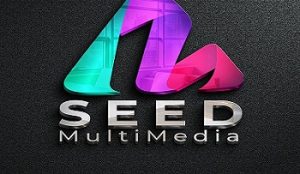
As an active recruiter (I am the owner of HIREghana, www.HIREgh.com), my associates and I come daily through several candidates’ CVs and (lack of) accompanying Cover Letters. Over the years, I have also read several -unfortunately rather bad- books on Cover Letters (do we really need a whole book to tell someone how to write a simple 1-page letter?) and a lot of outdated online advice.
So, kindly allow me to offer some brief tips coming from experience.
A Cover Letter (CL)? Why?
Simply put; The Cover Letter (or maybe it should be called Cover Email these days) is the introduction of your candidacy for a given role (or even an open solicitation) and an invitation to the reader to look at your CV. Basically, it is your job application and, the whole purpose of the CL is to make the reader open your CV attachment.
In a company (whether it is a recruitment firm or a normal employer-organization), where they might receive a few hundred applications for just a single but specific role, your cover letter might be the deciding factor that makes someone open your CV attachment and read your CV instead of placing it into a ‘look at it later on‘- folder.
Just to give you a perspective: We get 200-500 applications per posted vacancy. Max 10% have Cover Letters. Statistically – to our experience, 60%-90% of jobs go to applicants with well- written cover letters.
Also for a lot of recruiters and hiring managers, your cover letter is a proof of your written communication skills. Do you think that if you apply for a job that requires such skills, an email with a 1-Line: ‘look at my cv’, will really help your application?
Tip #0: Please invest the time to write a proper CL (Cover Letter) / a proper communication.
Tip #1: Make sure that you Write a clear Subject Line
Like any other communication, indicate what is it about: – type the vacancy’s title/ name and the applicable reference number/ID (if any); Why? An employee might have more than one vacancy open at any given time.
Avoid any subject title that shows that this is a Forwarded message of something you wrote for someone else.
Tip #2: Keep your 1st Paragraph Sweet & Short
Your 1st little Paragraph is about the WHY of your communication
Write just 2-3 Lines maximum, explaining why are you writing this letter. Can be as simple as ‘I am applying to your Space Chef vacancy which I saw on your website and I believe that I am a perfect fit’. If possible find the recruiter’s personal name; after all, a letter is always a personal communication.
Tip #3: Tell us in your 2nd Paragraph: WHO are you?
Just 6-10 Lines maximum, explaining to the recruiter:
- who are you as a professional and
- what relevant skills do you have?
This should be straightforward and clear- never a copy and paste of sentences from your CV.
Tip #4: Tell us WHAT can YOU do for us?
Tell the recruiter in the 3rd paragraph of your CL what can you do for their organization.
Another 6-10 Lines maximum, communicating to the recruiter –ideally in a factual & objective manner– why you are the perfect fit for them and their organization. It is basically your opportunity to tell them what you can do for them (again as it relates to the specific vacancy that you are applying to) and convince them that you can do so.
Basically here, highlight relevant experience not relevant courses taken. Sorry but we all hate when we see in a CL a list of 10-20 courses that you think that they will make your case stronger. All Employers & Hiring Managers look for Relevant Experience. Proof? Without meaning to be rude nor offensive, there are unfortunately plenty of unemployed holders of Master’s and MBAs in our country.
In the risk of sounding offensive, please cut all fluff and be specific / use numbers to quantify & justify your past success.
Please notice that:
- Proving to them that you are smart will most likely never get you the job.
- Proving to them numerically (with numbers) how you can add value to their organization, is almost a ‘guarantee’ that will get you the job
Basically, show them numbers: “Employers love to see numbers—it shows them that you speak their language and that you understand what they’re looking for in an employee: results.”
Tip #5: 4th Paragraph: WHY Them?
Just 3-4 Lines maximum: tell them in your own words why you will want to work for them and not for any company that can offer you a job. Google the company- it really makes a difference.
Convince them why you want to work for them – don’[y use any fluff please.
Tip #6: The Last paragraph: What NEXT?
Just 2-3 Lines maximum: this is the end of your communication. Do you want to tell them that you are looking forward to hearing from them or do you want to propose a meeting on Friday in a week from now at 3pm and have them possibly reply to you whether they are available or not?
Tip #7: Be Normal – not too Formal
Avoid things like ‘I wish to convey my interest in filling the open position at your reputable firm’
(why are almost all Ghanaians are using it? Did you ever met anyone applying to a non-reputable firm?),
“It makes you seem insincere and even robotic, not anything like the friendly, approachable, and awesome-to-work-with person you are.
We might have seen a few thousand candidates writing to us about how much ‘excited’ or ‘thrilled for the opportunity’ or some similar sentence.
Please do write like a normal person; reduce the use of adverbs of fake excitement. Just cut all fluff please
Tip #8: Use excellent Grammar, correct Syntax + your Spell- Checker!
Tip #9: Always Customize your Cover Letter (your CV too)
Recruiters are humans. When a recruiter reads: ‘Dear Hiring Manager, I am so excited to apply for the open position at your reputable company, where I hope to utilize my skills to progress in my career,….’ , we instantly recognize that you probably copied and now use a short of stock- letter that you mass-distributed/ forward to almost every email in Ghana.
Remember: All organizations want to see that the candidates are really excited / enthusiastic both about the advertised vacancy and the prospect of working for them. Simply put, you can’t go around avoiding a customized letter and CV for every single vacancy that you apply for.
Tip #10: A CL is not a CV, so DO NOT Regurgitate Your CV in it
Tip #11: A CL is the main body/text of your email – it should never be sent as an attachment.
The whole idea is to have the Cover Letter text to entice the recruiter to read your CV… If the CL is an attachment of its own, it defies its very purpose. Think of the ‘old Cover Letter’ now being transformed into today’s Cover Email (if you have a better name of it, I would love to hear it please)
Final Advice
Give people time to respond (minimum 2 weeks) / follow up with an acknowledgment, instead of bombarding them with mail or phone communication.
If you are asked to provide your CV in Word format, they probably have a good reason for asking for it (read www.hiregh.com/ats); so don’t respond with a PDF file or a photograph of your CV in a jpeg format.
If asked about your current salary and employment termination notice, please respond promptly and not after 10 days or so. Assuming that you want that job of course…
In Conclusion
Writing a good Cover Letter is that simple. And, following these 11 Tips, it will place you ahead of the crowd.
And again this is our experience: candidates who have invested the time to send a customized Cover Letter and CV, they almost always get the job- they even rarely have any competition.
Thank you and Good Luck please.
Irene
About the Author:
Irene Gloria Addison is the owner of HIREghana, a Leader Ghanaian Recruitment Agency and also a boutique /niche HRM & Organizational Development Consultancy, based in Accra. Irene and her team have also been constantly mentoring and coaching candidates on how to improve their LinkedIn presence, their CV and their interviewing skills.
HIREghana can be reached at +233 50 228 5155 or +233 266 555 907 – Our website is http://www.hiregh.com
Irene welcomes your feedback/ comments/ remarks/ suggestions via your email message to Press {at} HIREgh . com.
© 2018 Irene Gloria Addison and © 2018 Human Intelligence Recruitment


